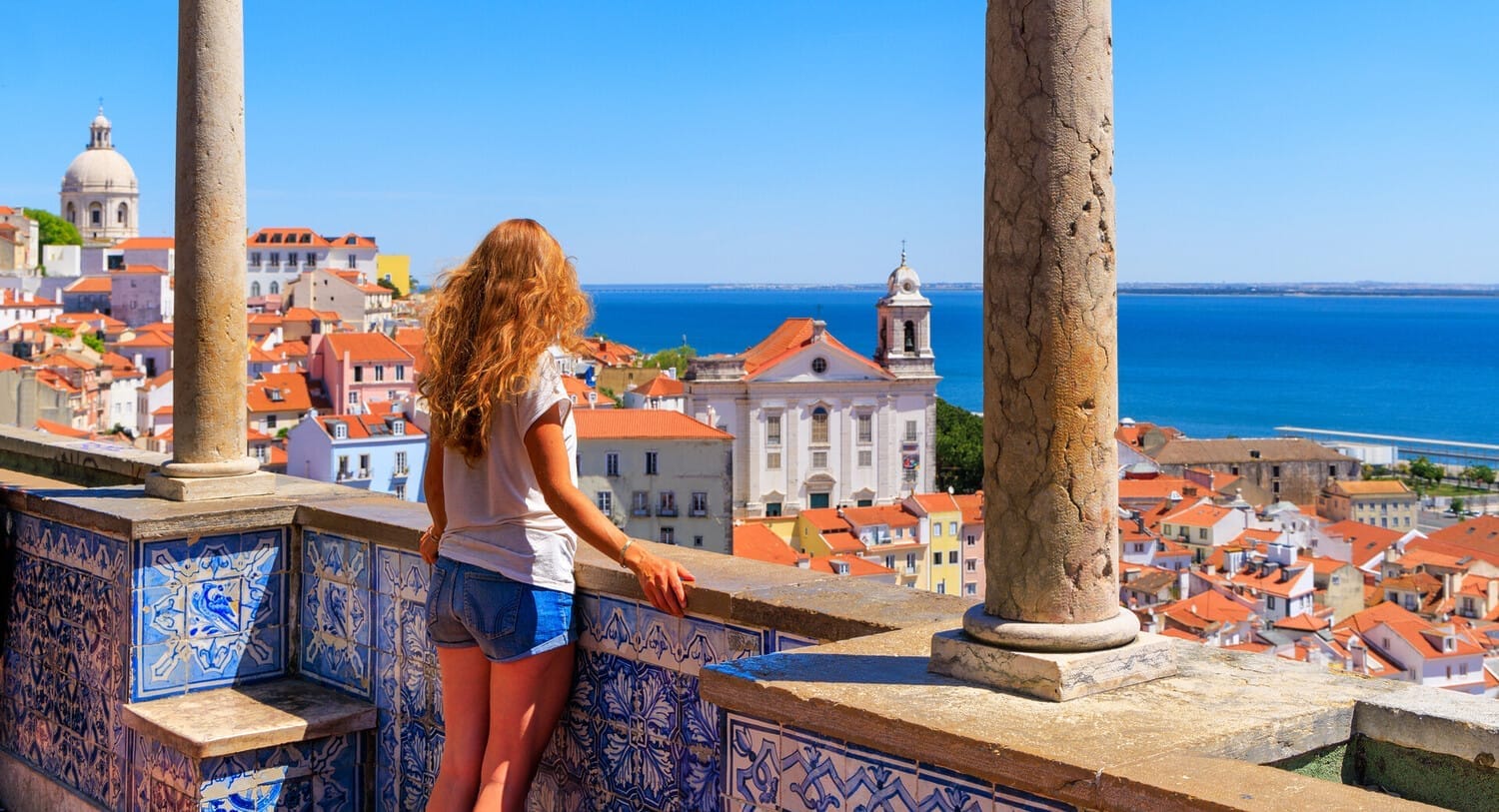Portugal as Your Plan B: The Complete 2025 Guide
Residency, Tax Benefits, and Mediterranean Living
Why Portugal has become Europe's most accessible backup plan for middle-market professionals, retirees, and digital nomads
Portugal isn't just a vacation destination anymore—it's become one of Europe's most strategic Plan B options for anyone seeking lower taxes, better quality of life, and geographic freedom.
While other European countries either price out middle-market earners or offer limited tax benefits, Portugal provides a unique combination: accessible residency pathways, competitive tax incentives, affordable Mediterranean living, and world-class healthcare—all without requiring million-dollar investments.
This comprehensive guide breaks down exactly what makes Portugal an exceptional Plan B in 2025, covering three critical areas: lifestyle benefits, residency options, and tax optimization strategies.
Why Portugal?
The Lifestyle Advantage
Cost of Living: Your Money Goes 2-3X Further
Portugal offers one of the lowest costs of living in Western Europe, where a couple can live comfortably on €2,500-€3,000 monthly outside major cities International LivingImin Portugal. Even in Lisbon, Portugal's most expensive city, the cost of living is approximately 34% lower than in the United States
Cost of Living in Portugal vs the USA in 2025: Ultimate Guide.
Real Monthly Budget Breakdowns (2025):
Smaller Cities & Towns (Aveiro, Braga, Évora, Santarém):
Single person: €1,100-€1,200/month
Couple: €2,000-€2,500/month
Rent (1-bedroom): €500-€700/month
Mid-Size Cities (Porto, Coimbra):
Single person: €1,400-€1,700/month
Couple: €2,500-€3,000/month
Rent (1-bedroom): €850-€1,100/month
Lisbon (Capital city):
Single person: €1,750-€2,350/month
Couple: €3,000-€3,500/month
Rent (1-bedroom): €1,000-€1,500/month
Groceries average around €300 monthly per person, with fresh produce, local cheese, and seafood significantly cheaper than North American prices Portugal Cost of Living 2025: Minimum Wage, Monthly Expenses. Restaurant meals cost 38% less than in the United States Cost of Living in Portugal 2025 - Monthly Budget Breakdown of Expenses, with quality local restaurants offering complete meals for €8-€15.
Healthcare: World-Class and Affordable
Portugal ranks 23rd globally and 14th in Europe for healthcare quality according to Numbeo's 2025 Health Care Index Portugal Healthcare: A Guide for Expats in 2025. More impressively, International Living ranked Portugal the best location globally for affluent relocators seeking consistent and affordable medical care Portugal's Healthcare System Ranked Top Choice for Expats and Affluent Families Globally.
Public Healthcare (SNS): Legal residents can access Portugal's universal healthcare system (SNS) by obtaining a residence permit and registering with the local health center Portugal Healthcare: A Guide for Expats in 2025. The system provides comprehensive coverage including primary care, hospital treatments, emergency services, and subsidized medications.
Private Healthcare: Private health insurance in Portugal averages €400 annually for basic coverage, with comprehensive plans costing approximately €1,000 annually Portugal Healthcare: A Guide for Expats in 2025—dramatically less expensive than US healthcare costs.
One American expat couple reports paying around $550 monthly for private insurance covering both partners, including 60 days of international travel coverage Portugal's Healthcare System Ranked Top Choice for Expats and Affluent Families Globally. Note that "doctors here take their time, nurses are compassionate, and the overall standard of care surpasses what we experienced in the US."
Climate and Geography
Portugal offers diverse climate zones and settings:
Lisbon & Central Coast: Mediterranean climate with mild, rainy winters and warm, dry summers
Algarve (South): Warmest region with 300+ days of sunshine annually
Porto & North: Cooler, with more rainfall but lush green landscapes
Interior: More continental climate with hot summers and cooler winters
The entire country is compact—you can drive from Lisbon to Porto in 3 hours, or reach the Algarve beaches in 2.5 hours from the capital.
Quality of Life Factors
Safety: Portugal consistently ranks as one of the world's safest countries
English proficiency: Widely spoken in cities and tourist areas, especially among younger generations and professionals
Infrastructure: Modern transportation, reliable internet (ideal for remote workers), excellent road networks
Schengen access: Portuguese residency allows visa-free travel across 27 European countries
Expat communities: Well-established networks, particularly in Lisbon, Porto, Cascais, and the Algarve

Portugal Residency Options: Multiple Pathways for Different Situations
Portugal offers several residency visa options, each designed for different circumstances and income types. Here's what's available in 2025:
1. D7 Visa (Passive Income / Retirement Visa)
Best for: Retirees, pensioners, and those with passive income from investments, rental properties, or dividends
Income Requirements (2025): Applicants must demonstrate passive income equivalent to at least Portugal's minimum wage of €870 monthly Portugal D7 Visa: How to Qualify for Passive Income Residency. For families:
Main applicant: €870/month (€10,440/year)
Spouse: Additional 50% (€435/month or €5,220/year)
Each child under 18: Additional 30% (€261/month or €3,132/year)
Process: Apply at Portuguese consulate in your home country, receive initial 4-month visa, then apply for 2-year residence permit in Portugal Portugal D7 Visa: How to Qualify for Passive Income Residency. The permit is renewable
.
Path to Citizenship: After five years of legal residence, D7 visa holders can apply for permanent residency or Portuguese citizenship, though proposed 2025 legislation may extend this to 10 years if enacted Get Golden VisaGlobal Citizen Solutions.
Key Requirements:
Proof of long-term accommodation (rental agreement or property ownership)
Portuguese tax number (NIF)
Portuguese bank account
Clean criminal record
Health insurance
Important Note: The D7 is now primarily for passive income earners; applications from active freelancers or remote employees are increasingly rejected under D7 Portugal’s Digital Nomad Visa (D8): 2025 Guide | Citizen Remote.
2. D8 Visa (Digital Nomad Visa)
Best for: Remote workers, freelancers, and digital nomads with active employment or self-employment income from foreign sources
Income Requirements (2025): Monthly income of at least €3,280 (approximately 4x Portugal's minimum wage), with savings threshold of €36,480 Get Golden VisaGlobal Citizen Solutions
Two Options:
Temporary Stay Visa: Valid up to 1 year, renewable for short periods
Residency Visa: 4-month initial visa, then 2-year residence permit leading to permanent residency
Process: Apply at Portuguese embassy or consulate with proof of remote employment, income documentation, accommodation, and health insurance Portugal Digital Nomad (D8) Visa Guide for 2025: Requirements and Costs
Path to Citizenship: Five years of legal residence (potentially extending to 10 years under proposed changes), with A2-level Portuguese language requirement Portugal Digital Nomad Visa: Ultimate D8 Guide 2025
Who Qualifies:
Salaried employees of foreign companies
Freelancers with international clients
Self-employed individuals earning from outside Portugal
Digital entrepreneurs
3. Golden Visa (Residency by Investment)
Best for: Those willing to make significant financial investments for minimal residency requirements
Investment Options (2025): Several pathways remain available after real estate was largely phased out:
€500,000 in qualifying Portuguese investment funds (Private Equity/Venture Capital)
€500,000 investment in existing Portuguese business creating 5+ jobs
€250,000 donation to cultural heritage preservation (€200,000 in low-density areas)
€250,000 donation to arts/culture (€200,000 in low-density areas)
Job creation: 10+ full-time positions (8+ in low-density areas) Portugal Golden Visa 2025: New Rules & Updates for Residency | Get Golden Visa
Minimal Physical Presence: Only 7 days per year required in Portugal to maintain residency status Portugal Golden Visa 2025: New Rules & Updates for Residency | Get Golden Visa
Path to Citizenship: After five years, though proposed legislation may extend this to 10 years, with residency period potentially starting only after residence card issuance Portugal Golden Visa 2025: New Rules & Updates for Residency | Get Golden Visa
Processing Time: Approximately 8-12 months Portugal Golden Visa 2025: New Rules & Updates for Residency | Get Golden Visa
4. D2 Visa (Entrepreneur/Business Visa)
Best for: Entrepreneurs starting or investing in Portuguese businesses
Requirements:
Business plan demonstrating economic viability and local benefit
Sufficient funds to support yourself and your business (minimum one year of living expenses)
No specific minimum investment amount, though typically €5,000+ expected
Process: Similar to D7/D8—receive 4-month initial visa, apply for 2-year residence permit, renewable with path to permanent residency and citizenship after five years.
Tax Incentives: How Portugal Reduces Your Tax Burden
Portugal's tax landscape changed significantly in 2024-2025. Here's what's currently available:
The NHR Regime: What Happened
Portugal's original Non-Habitual Resident (NHR) tax regime officially closed to new applicants in January 2024, with a final transition period ending March 31, 2025 NHR Portugal Tax Regime 2025: What Every Expat Should Know +2. This popular program offered a flat 20% tax rate on Portuguese income and exemptions on most foreign-sourced income for 10 years.
Good news: Individuals who already enrolled in NHR before the cutoff continue enjoying benefits for their full 10-year eligibility period Portugal Non-Habitual Residency Regime 2025: NHR 2.0 (IFICI).
NHR 2.0 (IFICI): The Replacement Program
Portugal introduced the Tax Incentive for Scientific Research and Innovation (IFICI), commonly called NHR 2.0, as the replacement for the original NHR Global Citizen SolutionsPortugal.com. While more restrictive, it still offers significant tax advantages for qualifying individuals.
Who Qualifies for NHR 2.0:
The regime is limited to highly qualified professionals in specific fields and industries including:
Scientific research and innovation
Technology and IT professionals
Education and academic roles
High-value industrial and service activities
Certain roles in Portuguese companies that have received investment support InvestmentvisaTouchdown
Tax Benefits (10 Years):
Qualified individuals receive:
20% flat tax rate on Portuguese-sourced employment and self-employment income (versus standard progressive rates up to 48%)
Exemption on most foreign-sourced income including dividends, interest, capital gains, and rental income from abroad Global Citizen SolutionsPortugal.com
Critical Difference from Original NHR:
Under NHR 2.0, foreign income doesn't need to be taxed in the source country to qualify for exemption—making it potentially more advantageous for qualifying individuals Portugal NHR 2025 - Portugal's Special NHR Tax Regime replaced by the - HTJ Tax.
Eligibility Requirements:
Applicants must:
Not have been a Portuguese tax resident in the previous 5 years
Become a Portuguese tax resident from 2024 onward
Work in qualifying professions or industries
Submit application by January 15 of the year following residency
Provide employment contract, proof of qualifications, and other documentation InvestmentvisaTouchdown
Application Deadlines:
For those who became tax residents in 2024, the deadline is March 15, 2025; for others, January 15 of the year following residency Portugal PathwaysHTJ Tax
Who Benefits Most from NHR 2.0?
Digital nomads and consultants working for non-Portuguese clients gain the most, especially with foreign-sourced income that can be structured to qualify for exemptions
Portugal's New NHR 2.0 Tax Regime: Essential Guide for Expats 2025 | Savory & Partners.
Important Note for Retirees:
Unlike the original NHR, NHR 2.0 doesn't specifically cover pension income with favorable rates. Retirees who secured NHR before the cutoff continue enjoying reduced pension tax rates for their full 10 years Portugal's New NHR 2.0 Tax Regime: Essential Guide for Expats 2025 | Savory & Partners.
Standard Portuguese Tax System
For those who don't qualify for NHR 2.0:
Portugal uses progressive tax rates ranging from 14.5% to 48% in 2025, with an additional 2.5%-5% solidarity surcharge on higher incomes Portugal NHR 2.0 (IFICI) Tax Regime: 2025 Playbook
Tax Residency Rules
You become a Portuguese tax resident if you either:
Spend more than 183 days in Portugal during a calendar year, or
Have permanent residency there indicating intent to maintain it as your habitual residencePortugal NHR 2.0 (IFICI) Tax Regime: 2025 Playbook
Important Distinction: Being a legal resident (having a residency permit) and being a tax resident are separate concepts with different implications.

Making the Decision: Is Portugal Right for Your Plan B?
Portugal Works Best For:
1. Middle-Market Earners and Professionals
Income: $75K-$250K annually
Current tax burden: 30-40%
Assets: $50K+ accessible funds
Want significant tax reduction without million-dollar investments
2. Retirees with Foreign Pensions
Pension/passive income: €10,000-€40,000+ annually
Want retirement budget to go 2-3X further
Seeking excellent, affordable healthcare
Prefer Mediterranean climate and culture
3. Digital Nomads and Remote Workers
Location-independent income from foreign sources
Can meet €3,280+ monthly income requirement
Want EU residency and Schengen access
Value quality of life and work-life balance
4. Those Seeking Geographic Freedom
Want a backup plan in stable EU country
Desire second passport option (after 5-10 years)
Value political stability and safety
Want to maintain citizenship flexibility
Realistic Expectations
Timeline:
Visa application to residency permit: 6-12 months
Permanent residency eligibility: 5 years (potentially changing to 10)
Citizenship eligibility: 5 years (potentially changing to 10)
Physical Presence:
D7/D8 visas: Cannot leave Portugal for more than 6 consecutive or 8 non-consecutive months during each permit period
Golden Visa: Only 7 days annually required
Language:
Portuguese language not required for residency
A2-level Portuguese required for citizenship
English widely spoken in urban areas and expat communities
The Bottom Line
Portugal offers what few other European countries can match in 2025: a realistic path to EU residency for middle-market earners, significant tax optimization opportunities for qualifying professionals, dramatically lower living costs, world-class healthcare, and genuine quality of life improvements—all without requiring ultra-wealthy status.
The original NHR tax regime may be closed, but Portugal remains one of Europe's most accessible and advantageous Plan B options. Whether you're optimizing for taxes through NHR 2.0, seeking affordable retirement under the D7 visa, building a digital nomad base with the D8, or establishing long-term European roots, Portugal provides clear pathways forward.
The key question isn't whether Portugal makes sense as a Plan B—it's whether you're ready to take the strategic steps to make it happen.
Ready to explore your Portugal strategy? Our European Lifestyle Strategy service researches your specific situation and shows you exactly which Portuguese residency pathway and tax optimization structure works best for YOUR circumstances—complete with real budgets, vetted professional contacts, and actionable next steps. Learn more →
Latest News
Who We are?
We give Strategic guidance for globally minded individuals ready to optimize taxes, gain mobility, and design a borderless life.
Created with ©systeme.io



